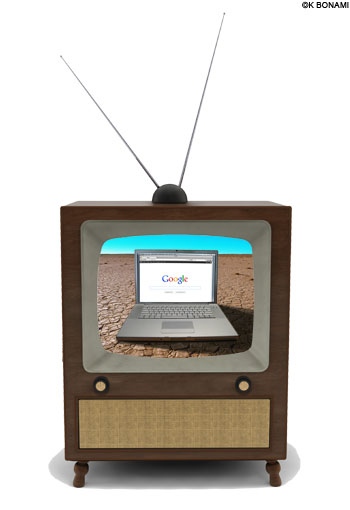
Imagine this:
A newly appointed
chairman of the Federal Communications Commission (FCC), the nation's most
important media regulator, appears
before a confab of television big wigs and reads the assembly the riot act.
The chairman opens by
making it clear that he is not impressed with television programming, which in
the course of his speech he characterizes as "a vast wasteland".
He is blunt: "Clean up
your own house, or the government will do it for you."
High-minded: "I am here
to uphold and protect the public interest."
Expansive: " "I believe
that the public interest is made up of many interests."
And inspirational: "We
need imagination in programming, not sterility; creativity, not imitation;
experimentation, not conformity; excellence, not mediocrity. Television is
filled with creative, imaginative people. You must strive to set them free."
There is, of course,
nothing fanciful about the scene I have sketched.
Newton Minow, the
34-year-old Chicago lawyer President John F. Kennedy appointed to lead the FCC
spoke the words
I have quoted in his first public address, which was to the National
Association of Broadcasters fifty years ago.
Minow's talk, widely
referred to as the "Vast Wasteland Speech," is something more than a historical
artifact; although it is that -- a testimony to the pragmatic idealism to which
the best aspects of JFK's New Frontier aspired.
In a larger sense,
Minow's words were part of a stream of progressive reform that began to course
in 1902, when President Theodore Roosevelt signed legislation that would
eventually spawn the Food and Drug Administration.
Throughout the
administrations of Woodrow Wilson, Franklin Roosevelt, Harry Truman, Kennedy,
Lyndon Johnson, and even Richard Nixon, the idea that the federal government
would play a central role in regulating and refining commercial behavior in
order to protect the public and promote a larger good became so widespread that
it was akin to gospel.
Yesterday's gospel,
however, is today's heresy.
It may not yet be a truth
universally acknowledged that the government is bad while only the marketplace
is good, but the political currents flow in that direction.
That is why Minow's
scheduled appearance at Harvard Law School on Monday at 5 PM should be of such
interest.
Minow will commune again
with the themes he explored in his 1961 speech in a symposium entitled "News
and Entertainment in the Digital Age: A Vast Wasteland Revisited".
Anyone can do the math
from the dates I've cited above, but it seems potentially seminal that Minow,
an Adlai Stevenson Democrat, an heir to a political tradition with roots that
go back 100 years, will 50 years after he sought to redefine excellence in
broadcasting tackle what 21st century communication could and should be.
Not many theoreticians
have the practical experience of Minow, who for many years now has dwelled at
the crossroads of politics and media.
What was once quaintly
referred to as "educational television" grew into PBS, the Public Broadcasting
Service, as a result of Minow's FCC tenure. While before cable, Minow's
sponsorship of the All-Channel Receiver Act of 1961 mandated UHF reception for
all subsequently manufactured televisions. These were the first halting steps
in what became an eventual broadcast revolution.
Jonathan Alter,
presidential historian, Bloomberg columnist, and MSNBC commentator, served with
Minow on a Harvard study group that lead to the establishment of regular
televised presidential debates in 1976.
Alter, who will be a
participant in the "Vast Wasteland" Revisited symposium, told me in a telephone
interview that he thought it would be hard to over estimate Minow's historic
role is shaping the contours of presidential discourse.
"Newt was a proponent of
debates between Stevenson and Eisenhower," Alter said, "Those may not have come
off, but the energy of his idea resulted in the Kennedy-Nixon debates, which
were of undeniable historic importance. Newt helped to marshal the intellectual
energy that made debates a regular part of the political landscape. "
Another symposium
participant, and a co-sponsor of the event, Ann Marie Lipinski, curator of the
Neiman Foundation, said that Minow has "a fierce insistence that we can do
better which reinforces his sense of public utility and public necessity."
I asked Lipinski what she
might be looking to emerge from the symposium?
"Newt has a wonderful
power to sculpt language. And that can set an agenda, provoke others along
entirely new lines of thought, or help those sorting through their ideas to refine
their thinking."
In an attempt to get a
bead on Minow's thinking prior to Monday's speech, I emailed him four
questions, here they are with his answers:
Do you think the sense of public spiritedness you called upon in 1961
is alive in today's communication conglomerates? I do not believe the current communication
companies think much today about their public service obligations. Fierce
competition has focused their attention on their bottom lines to the
exclusion of concepts of the public interest coming first. There are
exceptions, of course, but today's communications companies are a long
way from the values of Edward R. Murrow.
Is it possible to leverage past government investments and contribution
for future public good? Without
the government's investment and initiative, there would be no internet, no
communication satellites. Research funded with public money prompted our
technological revolution, and most young people are not aware of this history.
Advances depend on public/private partnerships - and today's political climate
endangers more progress.
Is there a single issue that matters above all others? Net Neutrality? The basic problem is there is no common
understanding of what the words network neutrality mean.
Is the digital wasteland any worse than the old broadcast wasteland? Not
comparable. Broadcast channels are limited, digital communication is
unlimited. I believe that expanded choice for viewers, listeners, and
digital communicators means more freedom for all of us.
















